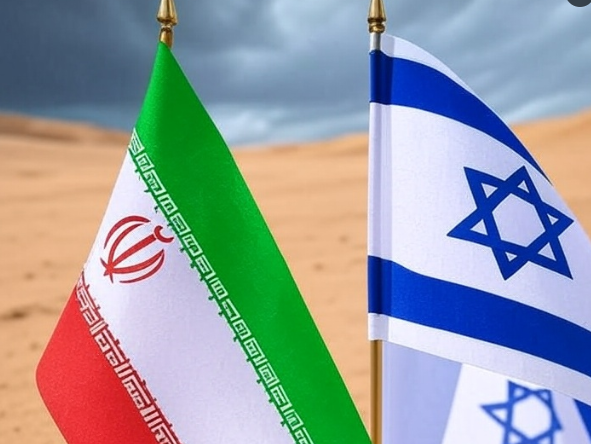Israel Strikes Iran: Tensions in West Asia have surged as Israel launched strikes on Iranian military and suspected nuclear sites, prompting explosions in Tehran. Israel declared a state of emergency, citing an existential threat, while Iran is expected to retaliate through direct or proxy attacks. The U.S. has distanced itself from the operation, stating it had no involvement. The situation is rapidly evolving, raising fears of a wider regional conflict and shaking global markets.
Israel Strikes Iran:USA Says Washington had no involvement in the attack.
In a major escalation of hostilities in West Asia, Israel has officially confirmed striking multiple sites in Iran, including reported military and nuclear facilities. In response, Iranian authorities confirmed that several explosions were heard in Tehran, triggering fears of a broader regional conflict. The strikes come amidst mounting global pressure, especially from the United States, to convince Iran to halt its production of material that could be used in developing a nuclear weapon.
As tensions peaked, Israel declared a state of emergency in anticipation of a possible missile and drone retaliation from Iran. The Israeli Defense Forces (IDF) issued a strong statement justifying the strikes, asserting that they are operating against what they termed an “imminent and existential threat.” According to the IDF spokesperson, “We cannot allow the Iranian regime to obtain a nuclear weapon that would be a danger to Israel and the entire world. This operation is for our right to exist here, for our future, and for our children’s future.”
Further IDF said: “We can now confirm that the Chief of Staff of the Iranian Armed Forces, Commander of the IRGC, and the Commander of Iran’s Emergency Command were all eliminated in the Israeli strikes across Iran by more than 200 fighter jets. These are three ruthless mass murderers with international blood on their hands. The world is a better place without them.”
This operation draws historical parallels to Israel’s strike on the Osirak nuclear reactor in Iraq many years ago. Defense analyst Shinjjoy noted that while discussions around a potential Israeli strike on Iran have been ongoing for years, this is the first major execution targeting a wide range of Iranian military and nuclear infrastructure.
The situation remains highly volatile with several key concerns ahead. First and foremost is the extent of damage caused by the Israeli airstrikes. Secondly, attention now shifts to how Iran will retaliate. Iran possesses significant missile capabilities and a robust military force that cannot be underestimated. The real threat, however, lies in Iran’s regional network of allies—including the Houthis in Yemen and Hezbollah in Lebanon—who have the capacity to launch parallel attacks against Israeli and Western targets.
Adding to the complexity, the United States has distanced itself from the Israeli offensive. US Secretary of State Marco Rubio clarified that Washington had no involvement in the attack. Despite their close strategic alliance, this distancing indicates possible diplomatic friction between the two nations over how to handle Iran’s nuclear ambitions.
Experts warn that this could just be the beginning. Iranian retaliation is expected, possibly through both direct strikes and indirect means via its proxies. In response, Israel may launch counterattacks, potentially leading to a full-scale regional war.
The impact of the conflict is already being felt in global financial markets. On the domestic front, the Indian stock market reacted sharply. The Nifty index plunged by nearly 205 points, hovering near the 24,600 mark. Investor sentiment remains jittery amid fears of an expanded conflict and its implications for global oil prices, defense spending, and economic stability.
As the world watches closely, the coming days will be critical in determining whether this conflict escalates into a broader war or if diplomatic efforts manage to contain it. The stakes are high—not just for Israel and Iran, but for the entire international community.
Disclaimer:
This article is based on currently available news reports, official statements, and expert analysis. The situation is developing, and details may evolve rapidly. Readers are advised to follow updates from verified sources. This content is intended for informational purposes only and does not represent any political stance or endorsement.

